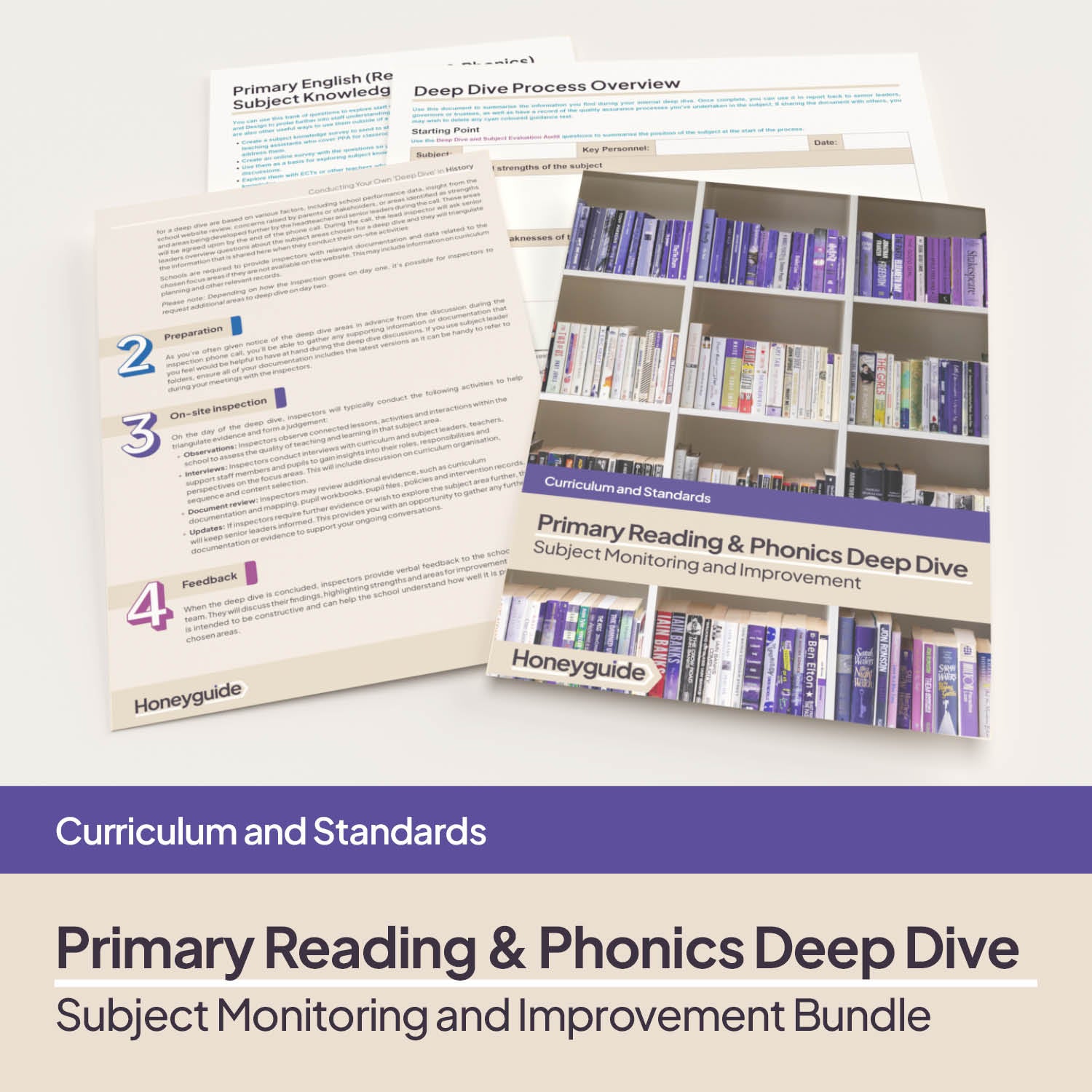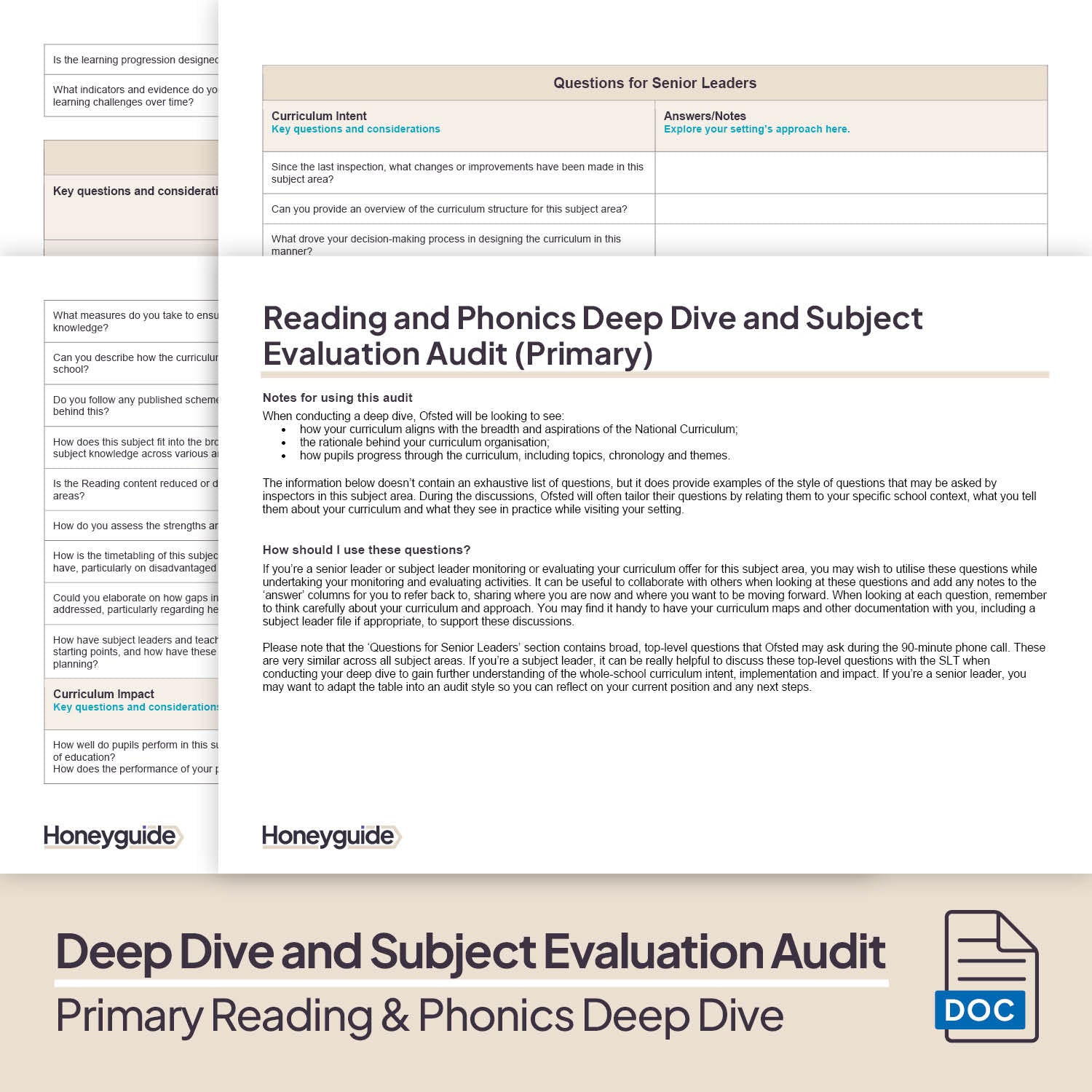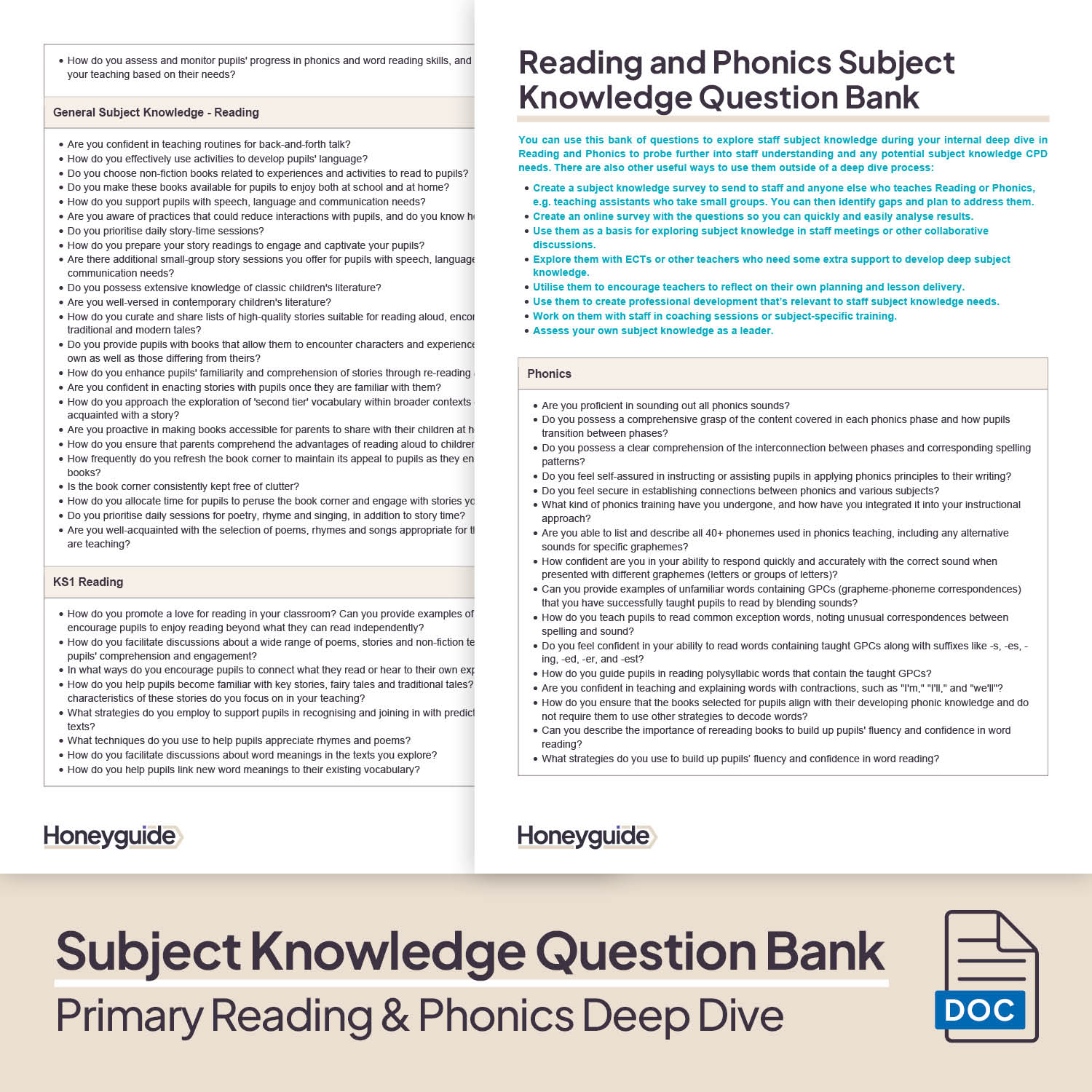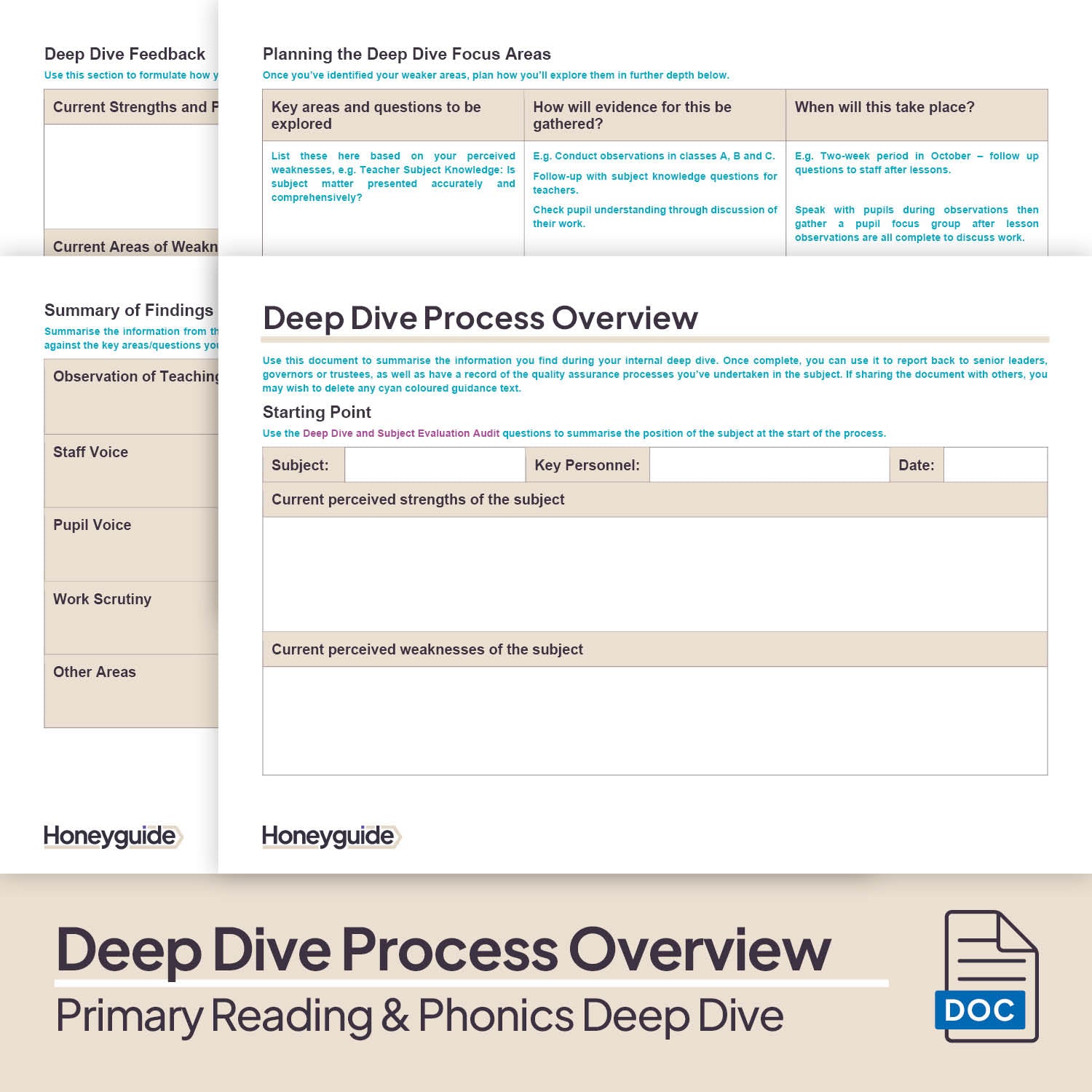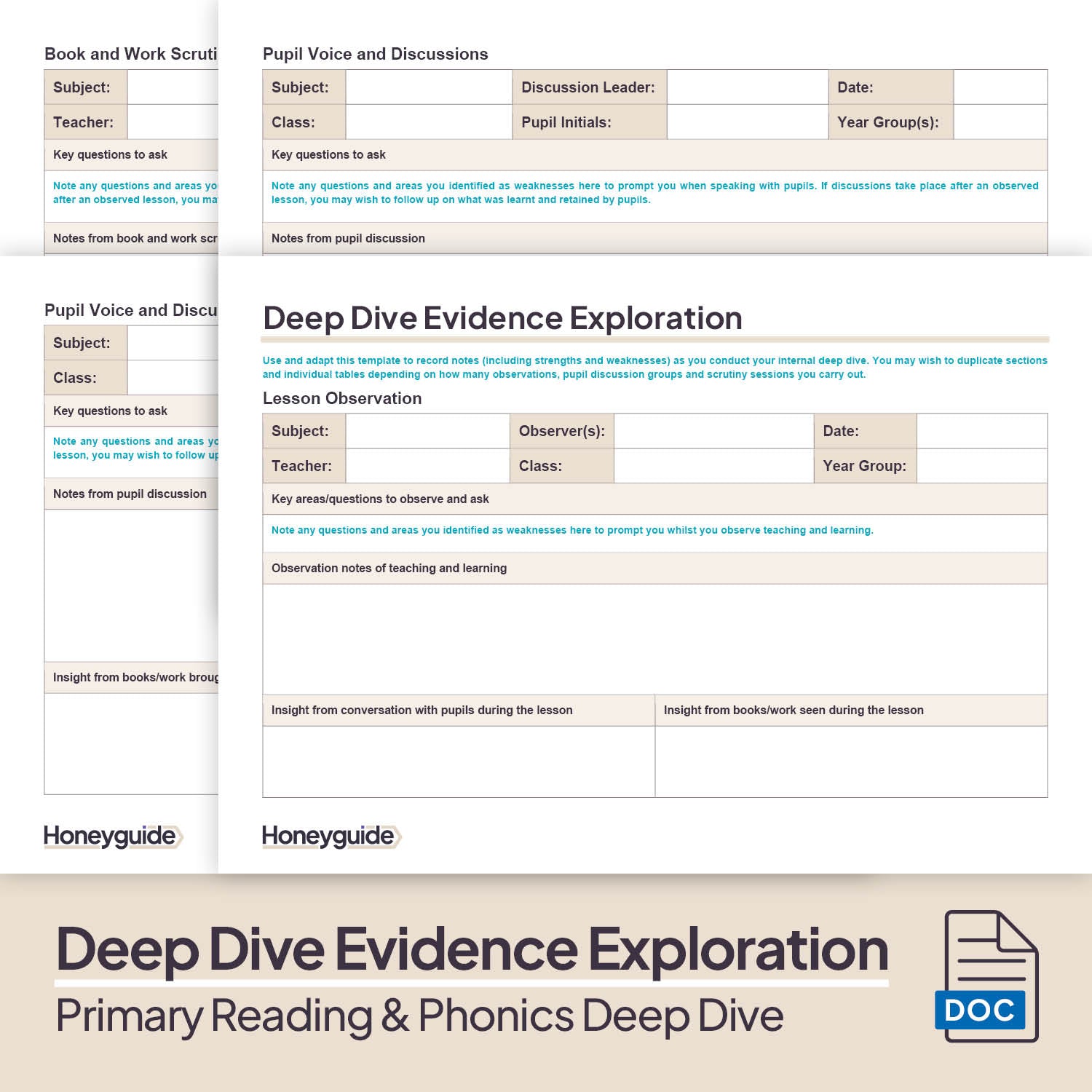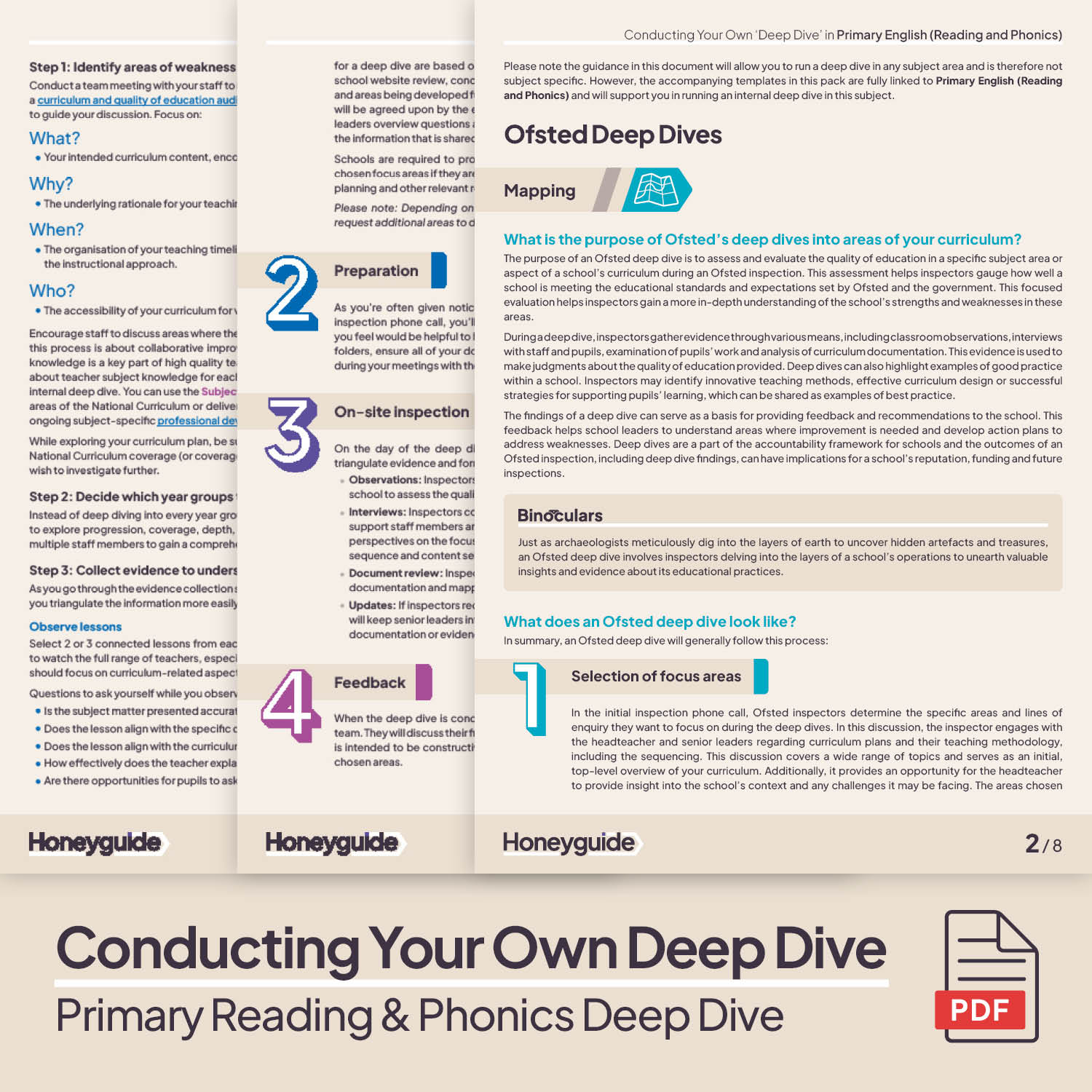We're in the process of updating this resource
We're updating this resource in line with the 2025 changes to the Ofsted Education Inspection Framework and the new Ofsted Inspection Toolkit.
If you want to be in the know when the update is complete, sign up to our newsletters.
Honeyguide School Leader Support
Primary English (Reading and Phonics) Deep Dive and Subject Knowledge Bundle
Primary English (Reading and Phonics) Deep Dive and Subject Knowledge Bundle
Looking to explore the primary Reading and Phonics in-depth and build confidence about an upcoming Reading Deep Dive in 2025? Tailored for primary English subject leaders, this bundle helps you to consider intent, implementation and impact questions when exploring reading and phonics, allowing you to consider areas of strength and weakness so you can plan for improvement and (if you feel you need to) prepare for Ofsted.
- Buy what you need when you need it
- No costly subscription required
- Instant download
Couldn't load pickup availability
Share
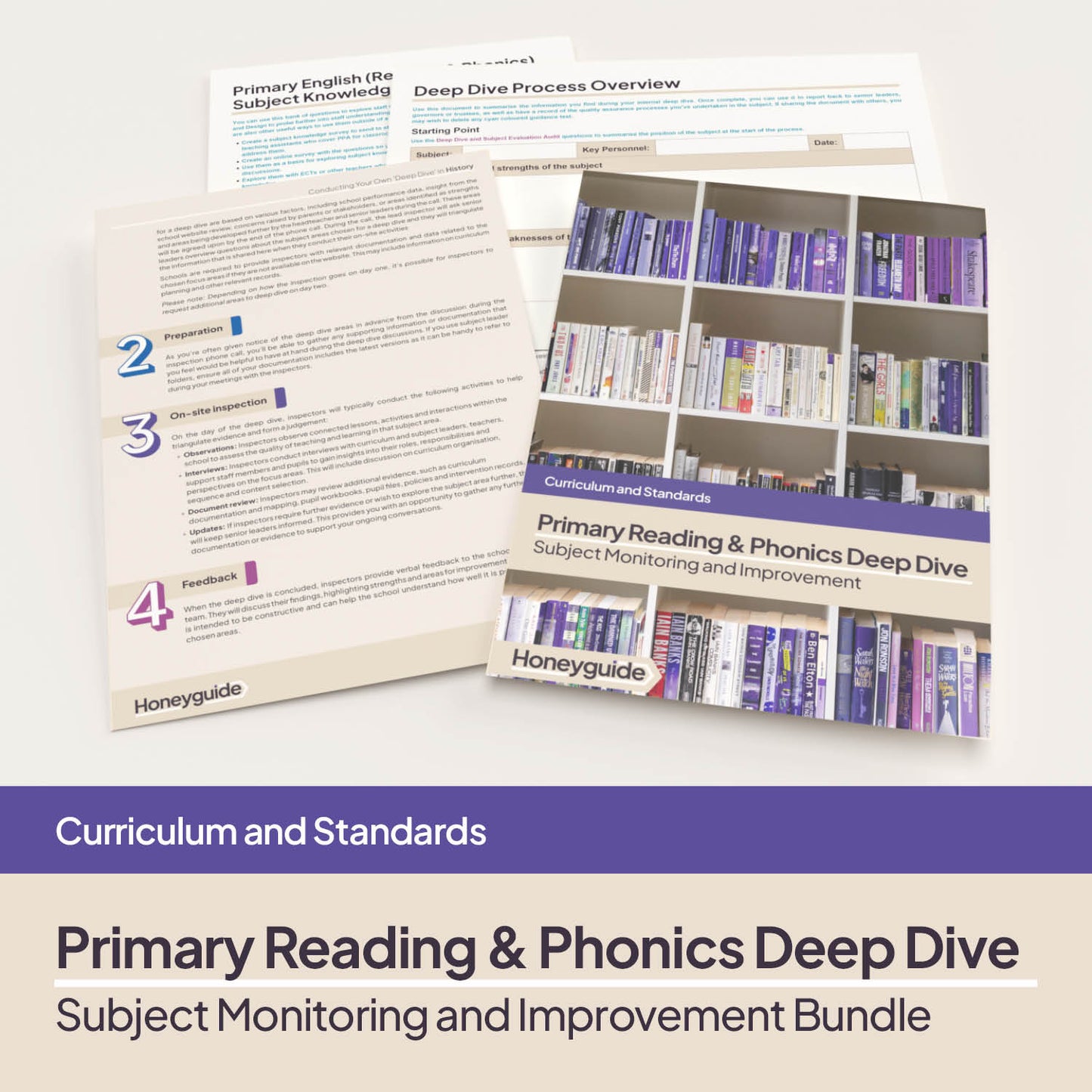
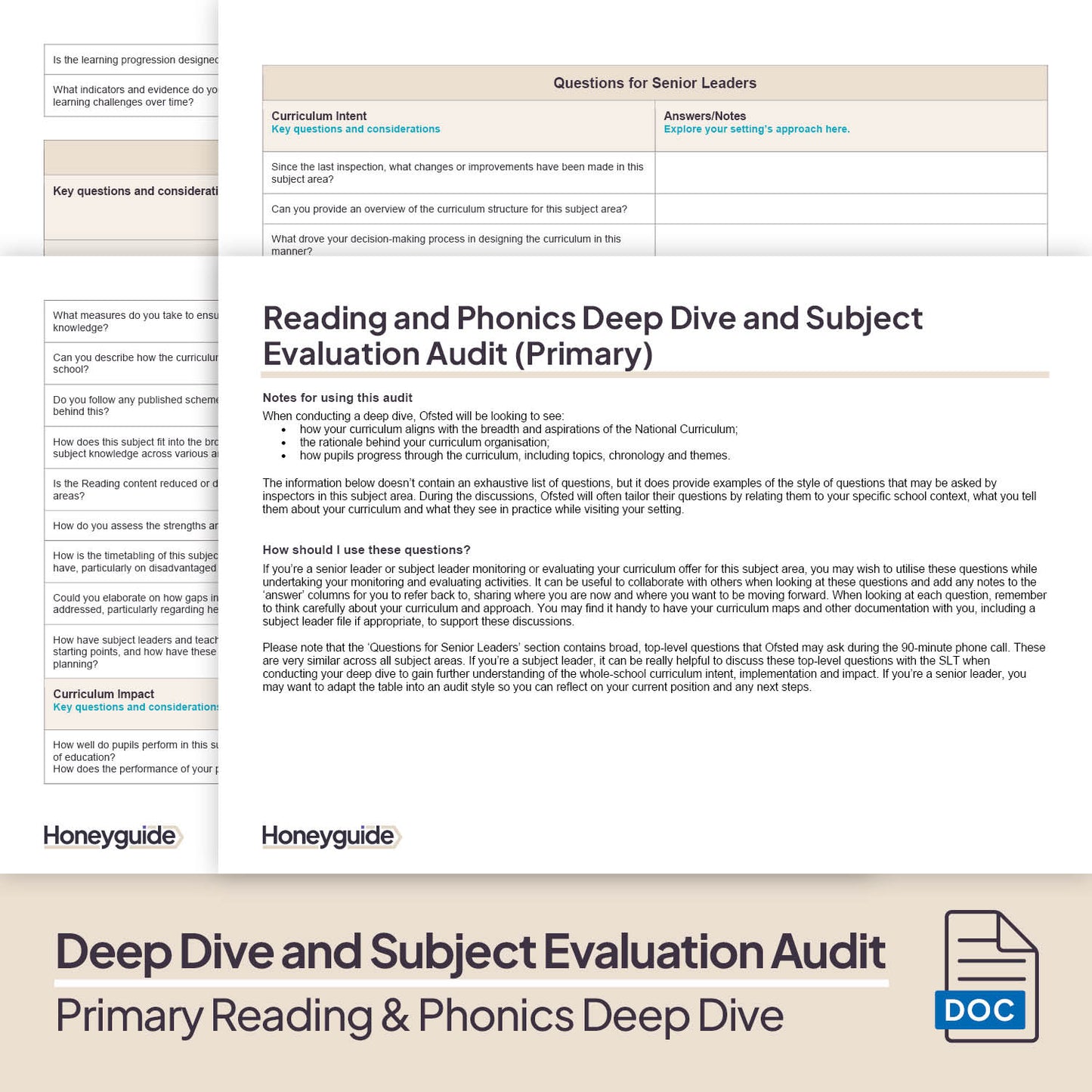
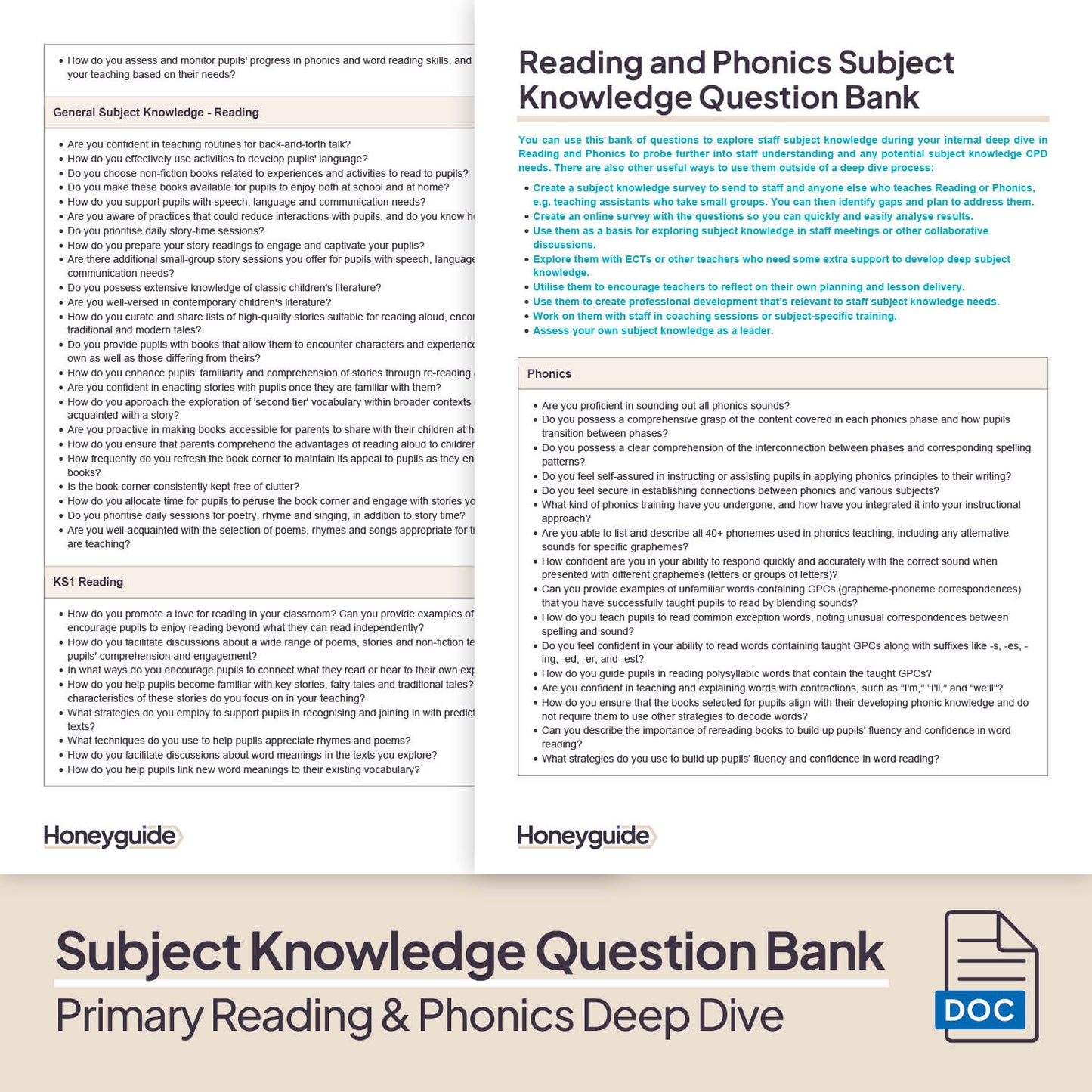
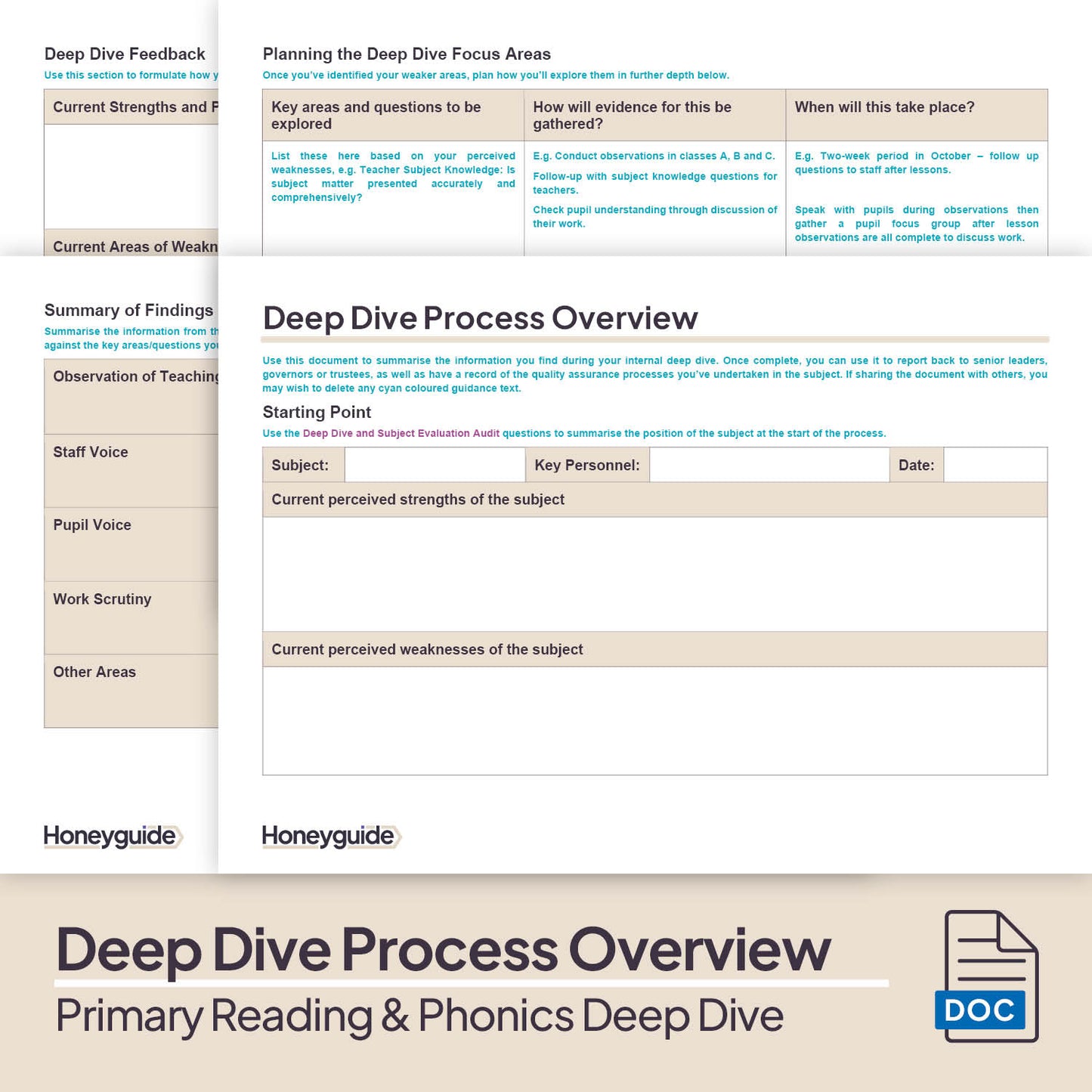
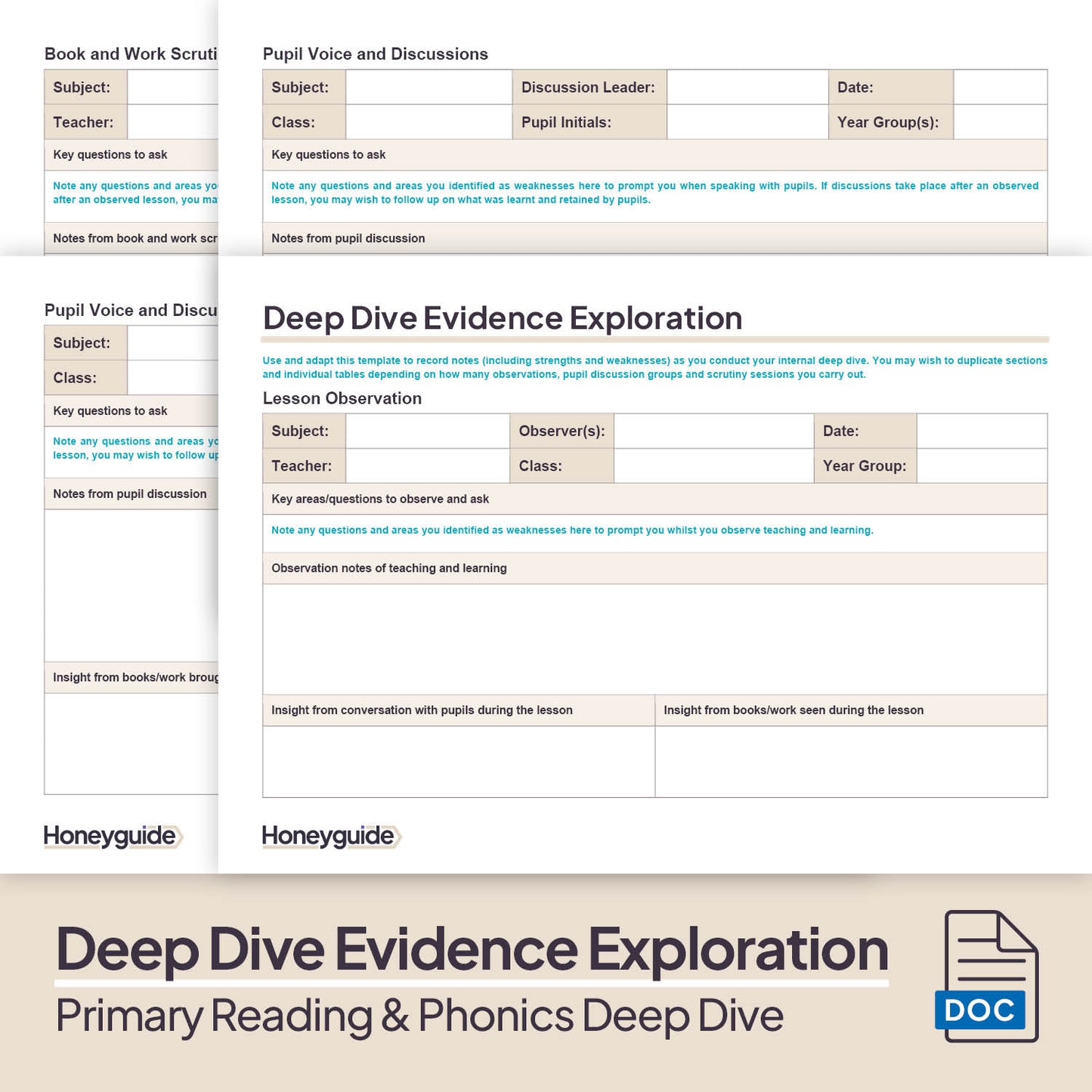
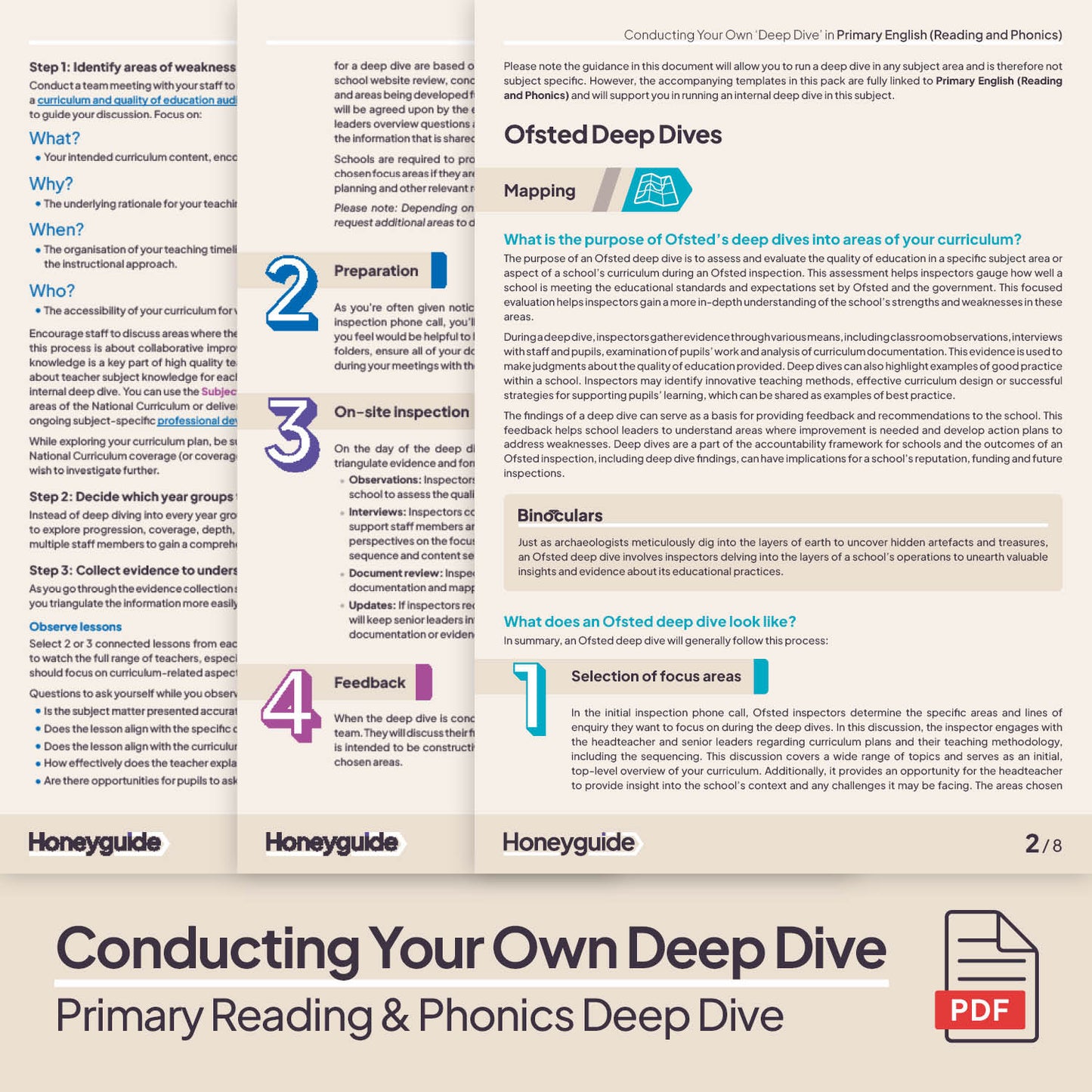
Collapsible content
What's included in this bundle?
A bundle pack containing 8-page guidance of what an Ofsted deep dive entails and how you can utilise a similar internal process in your own subject monitoring. It contains four comprehensive templates:
1. Reading and Phonics Deep Dive and Subject Evaluation Audit (Primary) - over 100 deep dive questions about both reading and phonics to ask stakeholders, including senior leaders, subject leaders, teachers and pupils. As a subject leader of English, reading or phonics, you can utilise these to reflect on the current picture of reading and phonics in your school and explore specific areas further when listening to staff and pupil voice. Many literacy subject leads find it useful to practise them with other leaders to build their own confidence in preparation for a Reading Ofsted deep dive.
2. Reading and Phonics Subject Knowledge Question Bank - content-specific questions for both reading and phonics covering EYFS, KS1 and KS2 . They’re ideal if you’re wanting to explore the finer details of staff members' reading and phonics subject knowledge.
3. Deep Dive Process Overview - use this to structure your internal deep dive in early reading and phonics, working through the process of identifying your perceived strengths and weaknesses, observation and questioning, and creating a plan of action.
4. Deep Dive Evidence Exploration - a handy place to collate all your observation notes when conducting a deep dive, including observing reading or phonics sessions, listening to pupils read and looking through work or folders.
Who will find this resource useful?
English subject leaders or those leading on key elements of the English curriculum, such as a reading lead, phonics lead, literacy lead or even EYFS leads will find this pack useful. It's especially helpful for those who are new to an English leadership role but anyone with responsibility over the English curriculum will feel supported when monitoring teaching and learning, or if preparing for an Ofsted deep dive in Reading or Phonics.
Curriculum leaders, senior leaders, headteachers or anyone else with responsibility for teaching and learning will also find the pack beneficial, whether they use it to conduct a deep dive themselves or support their English and literacy subject leader to prepare for an Ofsted inspection. The Phonics and Reading deep dive questions are particularly useful in reflecting on your setting's current practice.
What questions does this pack have the answers to?
Knowing you may have to go through an Ofsted deep dive in Reading, which inspectors always select at a primary level, can cause feelings of stress, anxiety and worry, especially if you’re thinking about what questions Ofsted will ask about Reading and how you’ll answer. This pack supports that thinking process, especially if you work alongside other leaders to consider what makes great teaching and learning in phonics and Reading, and how your school does or doesn’t do this.
However, it’s not just about preparing for an Ofsted inspection or doing things because Ofsted might want to see them - it’s about understanding the picture of your subject and knowing its strengths and weaknesses so you can get great outcomes for all of your pupils. It’s also important to know that even if you conduct an internal deep dive and find there are gaps, you can use this to formulate your next steps in an action plan, which will help to ensure improvement for all.
This pack can help you to understand:
- What is a deep dive?
- What is the purpose of Ofsted’s deep dives into areas of your curriculum?
- What does an Ofsted deep dive look like?
- Why might I want to conduct my own internal deep dive?
- Who should I involve in an internal deep dive?
- What questions will I be asked in a reading deep dive?
What else can help me?
Deep dive packs for all other national curriculum subjects are available from Honeyguide.
Core Subjects:
- Primary English (Reading and Phonics) Deep Dive
- Primary English (Writing, SPAG and Spoken Language) Deep Dive
- Secondary English Deep Dive
- Maths Deep Dive
- Science Deep Dive
Foundation Subjects:
- Art and Design Deep Dive
- Citizenship Deep Dive
- Computing Deep Dive
- Design and Technology (DT) Deep Dive
- Geography Deep Dive
- History Deep Dive
- Languages / MfL Deep Dive
- Music Deep Dive
- Physical Education (PE) Deep Dive
- PSHE, RSHE and RSE Deep Dive
- Religious Education (RE) Deep Dive
Looking for every deep dive pack in one bundle?
If you're a head, senior leader, trust leader or hold responsibility for the full curriculum, our Deep Dive in Every Subject: Full Curriculum Set is the best value-for-money option to purchase all 16 packs.
If you lead the Early Years Foundation Stage, this EYFS Deep Dive pack can help you to explore your EYFS provision in-depth and build confidence for an upcoming Ofsted inspection or deep dive.

